Signed into law in 2022, The No Pain Act is making waves in outpatient surgery centers by expanding access to non-opioid pain management options.
Traditionally, opioid prescriptions were common in post-surgical care. But with the opioid epidemic surging, there was a pressing need for alternatives.
One thing many surgery centers do not know is that non-opioid options such as ambIT.
So, what exactly does the No Pain Act mean for outpatient surgery centers, and what has changed since the law went into effect?
The Landscape of the Opioid Epidemic: Time for an Intervention
As of 2019, an estimated 90% of Americans undergoing surgery were given an opioid prescription to manage pain. According to a 2017 study published in the Journal of Pain, the average post-surgical patient is prescribed 80 pills, and only half of these pills are used.
With more and more prescription opioids in circulation, drug-related deaths have sadly skyrocketed since the COVID-19 pandemic. In 2020 alone, more than 48,000 people died due to synthetic opioid overdose. Experts believe that opioid usage is also the gateway to stronger, deadlier drugs. And for someone struggling with addiction, this type of prescription after surgery is obviously problematic.
As statistics rose for individuals abusing prescription pills, both parties put aside their differences and voted to pass the No Pain Act on December 28, 2022. Initially introduced by Senator Shelley Moore Capito, this law addresses barriers to non-opioid pain management. Now anyone enrolled in Medicare has other insurance-covered options when it comes to pain control.

What is the No Pain Act?
The Non-Opioids Prevent Addiction in the Nation Act, or “No Pain Act” for short, is a bipartisan law aimed at reducing opioid use. The goal of the law is simple: prevent addiction before it starts.
The law achieves this by expanding access to non-opioid pain management options, particularly for Medicare patients undergoing surgeries. The act encourages the use of alternatives like non-opioid drugs, devices, and treatments by providing separate reimbursement for them in ambulatory surgery centers (ASCs) and hospitals starting in 2025.
Importantly, the No Pain Act doesn’t take any rights away from doctors or add restrictions. Instead, it provides insurance coverage for managing acute pain after surgery and other use cases, which provides patients with more options when it comes to pain management. This means the law will give patients more control over their healthcare choices.
No Pain Act Timeline and Updates for 2025
While the No Pain Act was passed in 2022, there have been a number of developments in 2024 and 2025:
- March 2021: No Pain Act introduced in the Senate
- December 2022: No Pain Act passed.
- July 2024: Reimbursement approved for qualifying non-opioid treatments.
- January 2025: Full Medicare coverage for qualifying non-opioid treatments goes into effect.
One significant change due to the act is separate Medicare reimbursement for non-opioid treatments used in ambulatory surgery centers (ASCs), which is due to take effect in 2025.
This reimbursement encourages the use of specific approved non-opioid alternatives. Currently, there is just one medical device approved for separate reimbursement, the On-Q device from our partner Avanos.
However, we are already seeing other non-opioid alternatives gain in popularity, such as multimodal pain pumps, including the ambIT electric device system from Avanos. As more data and published research becomes available from non-opioid systems, we expect a broader selection of devices to qualify for reimbursement.
It’s also notable that more legislation is on the table that would expand access to non-opioid pain management options for seniors. The newly introduced Alternatives to Prevent Addiction in the Nation (PAIN) Act focuses on ensuring that Medicare patients have comprehensive access to innovative pain solutions without the risk of addiction or side effects associated with opioids.

Qualifying Alternative Pain Treatments and Additional Types to Consider
The No Pain Act encourages ambulatory surgery centers to consider some of the many different non-opioid options available.
As of July 2024, alternative treatments that qualify for separate reimbursement include:
| Brand Name | HCPCS Codes | Description |
| Exparel | C9290 | Injection, bupivacaine liposome, 1mg |
| Omidria | J1097 | Phenylephrine 10.16 mg/ml and ketorolac 2.88 mg/ml ophthalmic irrigation solution, 1ml |
| Dextenza | J1096 | Dexamethasone, lacrimal ophthalmic insert, 0.1 mg |
| Xaracoll | C9089 | Bupivacaine, collagen-matrix implant, 1mg |
| Zynrelef* | C9088 | Instillation, bupivacaine and meloxicam, 1 mg/0.03 mg. *Effective April 1, 2025 |
| Ketorolac tromethamine Injection | J1885 | Injection, ketorolac tromethamine, per 15 mg |
| ambIT Pump | C98X4 | Elastomeric infusion pump, non-opioid pain management delivery system, including catheter and other system component(s) |
Other options outpatient surgery centers should be considering as part of their pain management programs include:
Over-the-counter pain relief:
- Ibuprofen
- Aspirin
- Tylenol
No-drug therapies:
- Physical therapy
- Acupuncture
- Injections
Medical devices:
High-tech pain control methods:
- Pain pumps
- Nerve blocks
As an example of these solutions in action, The University Center for Ambulatory Surgery (UCAS) partnered with Compression Solutions to implement the ambIT electronic system from Avanos as a non-opioid pain management option. On top of this benefit, the program also led to cost savings of $34,000 savings in the first six months of the program, thanks to Compression Solutions’ dedicated medical billing services.
Multimodal Pain Pumps Should Gain More Recognition as Safe, Effective and Flexible Pain Management
The No Pain Act shows that the train has left the station: over the coming years, we should see more and more ambulatory surgery centers embracing alternative pain management options, especially ones that give control and choice to the patients.
We expect that multimodal pain pumps like the ambIT system will continue to gain recognition from lawmakers as an effective way to manage pain without prescribing opioids, while still providing patients with control over their care at home.
At Compression Solutions, we’re excited to see more and more healthcare facilities adopting these alternative treatments. And we are here to partner with surgery centers ready to take the next step.
Get ambIT for Your Facility
Equip your hospital or surgery center with ambIT pain pump devices, including convenient medical billing and customer support when you order through Compression Solutions.
